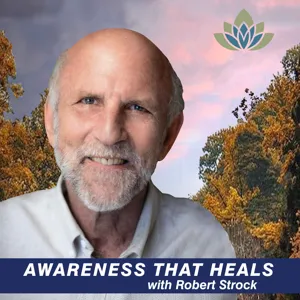Podcast Summary
Understanding the Complexity of Shame: Shame goes beyond guilt and remorse, leading to a deep sense of worthlessness and an impulse to hide or withdraw. Distinguish between healthy guilt and debilitating shame, and seek self-compassion when dealing with feelings of shame.
Shame is a complex emotional experience that goes beyond just feeling guilty or remorseful. It's a deeply rooted feeling that one is inherently flawed or unworthy, leading to a crippling sense of worthlessness and an impulse to hide or withdraw. Shame can be traced back to early childhood experiences and is often associated with feelings of inadequacy and inferiority. It's important to distinguish between healthy guilt and remorse, which motivate us to repair harm and make amends, and the debilitating shame that can leave us feeling broken and irredeemable. Professor Paul Gilbert's work on the origins of shame and the development of compassion-focused therapy offers valuable insights into understanding and healing from shame. Overall, this episode emphasizes the importance of recognizing and distinguishing between different emotions and the need for self-compassion when dealing with feelings of shame.
The Evolution of Shame: A Unique Human Social Emotion: Shame, a human social emotion, evolved to promote trust and cooperation through the ability to recall past betrayals and project into the future.
While there are innate temperamental variations in humans when it comes to anxiety, anger, and sadness, there is no evidence of a specific subgroup that is genetically prone to shame. Shame is a uniquely human social emotion, and its development in the human brain, which tripled in volume over the last several million years, is believed to have promoted the survival of both the band and the individuals by enabling trust and cooperation. The ability to recall past betrayals and project into the future with mental time travel plays a significant role in shame, particularly in the context of relationships and sexuality. Overall, the evolution of shame has played a crucial role in the development of human relationships and cooperation.
The importance of shame and guilt for early humans: Shame and guilt were essential emotions for early humans, serving as a bonding mechanism and promoting group cohesion. Sociopaths, who lack these emotions, may have been adaptive in hunter-gatherer societies due to their immunity to shame.
Unlike emotions like fear, sadness, and anger which had specific uses for a small subset of the tribe, shame and guilt were essential for the entire group. The vulnerability to shame and guilt was not limited to a particular subgroup, but rather, it was crucial for everyone. This theory, although not scientifically proven, suggests that sociopaths may be the exception, as they exhibit an immunity to shame. This historical narrative could explain why sociopathic behavior, which can cause significant harm to others, might have been adaptive in hunter-gatherer societies. Additionally, the development of shame and guilt begins in early childhood, as human infants are highly dependent on their caregivers. A child's signals of distress, need, or desire must matter to their caregivers for healthy development. Abnormalities in this process, such as premature birth or colic, can impact a child's normal range of needs, potentially leading to issues with shame and self-worth.
Impact of Early Childhood Care on Emotional Development: Early childhood care significantly impacts emotional development. Lack of sensitivity, availability, and responsiveness can lead to deep-rooted shame experiences, affecting individuals as adults. The importance of a supportive community in raising children is emphasized.
The quality of care and emotional availability from parents or caregivers during a child's early years significantly impacts their emotional development. Lack of sensitivity, availability, and responsiveness can result in deep-rooted shame experiences, which can unconsciously affect individuals as adults. The demands of caring for an infant or toddler are relentless and can be overwhelming, making it easy for caregivers to become frustrated or unresponsive. However, the impact of these seemingly minor interactions can leave lasting shame injuries. The African proverb "it takes a village to raise a child" highlights the importance of a supportive community in raising children, as the responsibility should not solely rest on the parents. Today, many people are entering adulthood with unconscious shame experiences due to the absence of this support system. Understanding the vulnerability to shame and its potential causes can help individuals develop empathy and compassion towards themselves and others.
Early parenting's impact on child's self-worth: Neglect or harsh punishment in early years can lead to negative beliefs about self-worth, potentially causing difficult reactions in adulthood. Listen to the ZOE Science and Nutrition podcast for science-based health choices to improve long-term wellbeing.
The way parents respond to their child's needs during the early years has a significant impact on the child's self-worth and emotional development. Neglect or harsh punishment can make a child feel unloved and unwanted, leading to beliefs of worthlessness and a need for conditional approval. This can result in difficult reactions in adulthood or teenage years, such as rebellion or a lack of concern for the parent's happiness. On a different note, taking care of one's long-term health is essential, and the ZOE Science and Nutrition podcast is an excellent resource for making informed health choices. By listening to this podcast, you can join millions of others in transforming their health through science-based information.
Simple solution for healthy skin: OneSkin's OS peptide reduces lines, wrinkles, and thinning skin, making it a simple addition to any skincare routine. Remember, abuse is never the victim's fault, and healing involves acknowledging this truth.
Taking care of your skin doesn't have to be complicated. OneSkin's OS peptide is a simple, scientifically validated solution for keeping your skin healthy and looking its best. This proprietary ingredient works with aging cells to reduce lines, wrinkles, and thinning skin. The ease of use makes it a great addition to any routine. Another important takeaway is the impact of abuse on victims. It's a tragic reality that abuse can occur within family circles and other trusted relationships. One common result is the victim feeling ashamed, as if they are the ones who are stained or tainted. This sense of shame can be a significant part of the healing journey, as it's essential to remember that the shame should be on the abuser, not the victim. It's crucial to raise awareness of this issue and provide resources for those who have experienced abuse. Lastly, the Doctor John DeLaney Show offers practical advice for navigating life's challenges. With a PhD in counseling and over 20 years of experience, Dr. DeLaney provides a direct and supportive approach to help people deal with a range of issues, from relationships to emotional well-being. The show's format creates a safe space for real people to call in and receive guidance, making it a valuable complement to the Being Well podcast.
Early Childhood Experiences and Shame Injuries: Early childhood experiences, including neglect, excessive punishment, and unaddressed traumas, can lead to feelings of shame and inadequacy in adulthood, affecting self-perception and relationships. Recognizing and addressing these feelings is crucial for emotional healing and growth.
Childhood experiences, such as neglect, excessive punishment, or unaddressed traumas before the age of 3 or 4, can lead to feelings of shame and inadequacy in adulthood. These feelings can manifest in various ways, including an underlying sense of not being good enough, difficulty expressing oneself, and overreactions to minor transgressions or internalizing shame due to situations where one was unable to prevent or fix a problem for someone else. These shame injuries can significantly impact a person's self-perception and relationships. It's essential to recognize and address these feelings to promote emotional healing and growth.
Understanding the Impact of Shame Injuries: Shame injuries from past experiences can create deep emotional wounds, leading to negative emotions and a lack of resilience. Self-compassion, identifying inappropriate burdens, and challenging negative emotions can help heal these wounds.
Our experiences, especially those rooted in shame, can have a deceptive and far-reaching impact on our emotions, sometimes leading us to feel triggered by seemingly unrelated situations. Shame injuries, whether from bullying, discrimination, childhood mistakes, or moral dilemmas, can create a foundation for negative emotions that last for decades. To better recognize and heal from these underlying injuries, it's essential to identify the disconnect between what's worth carrying and what's inappropriate to be burdened by. Practicing self-compassion, treating ourselves with kindness, and standing up against internalized oppressors or inner voices can help us develop resilience. When feelings of inadequacy or fault arise, it's important to pause and ask ourselves if our reaction is appropriate, and if not, to challenge those emotions and focus on what's truly worth carrying.
People can be both shitty and noble: Acknowledge fault, make amends, learn, surround self with positivity, practice self-compassion, and heal from shame or trauma.
While it's natural to feel guilt or shame when faced with criticism or conflict, it's important to remember that people can be both shitty and noble, and sometimes, other people's reactions are not a reflection of our worth as individuals. It's crucial to acknowledge fault when necessary, make amends, learn from our mistakes, and move on. Additionally, it's essential to surround ourselves with experiences and relationships that foster a sense of being cherished, special, and seen. Lastly, for those dealing with deep-rooted shame or trauma, exploring the present moment awareness beyond good or bad, shameful or worthy, can be a powerful practice for healing. Overall, the focus should be on self-compassion, self-forgiveness, and seeking out positive experiences and relationships.
Impacts of childhood shame experiences: Childhood shame experiences, whether from hereditary factors or caregivers, can create deep imprints leading to negative patterns. Healing through self-compassion, mindfulness, and challenging negative thoughts can improve quality of life.
Childhood experiences of shame, even those that come from well-intentioned caregivers, can have lasting impacts on our lives. Shame enters us through both hereditary factors and our interactions with caregivers, and these experiences can create deep imprints that make even minor negative experiences feel overwhelming. Untangling from these shame injuries is a valuable process that can begin in our late teens, twenties, and beyond, leading to improved quality of life. Techniques for healing from shame include self-compassion, mindfulness, and identifying and challenging negative thought patterns. Next week, we'll explore self-compassion further with Dr. Chris Germer. If you've enjoyed this podcast, please consider leaving a comment, rating, or subscribing, and sharing it with a friend.






